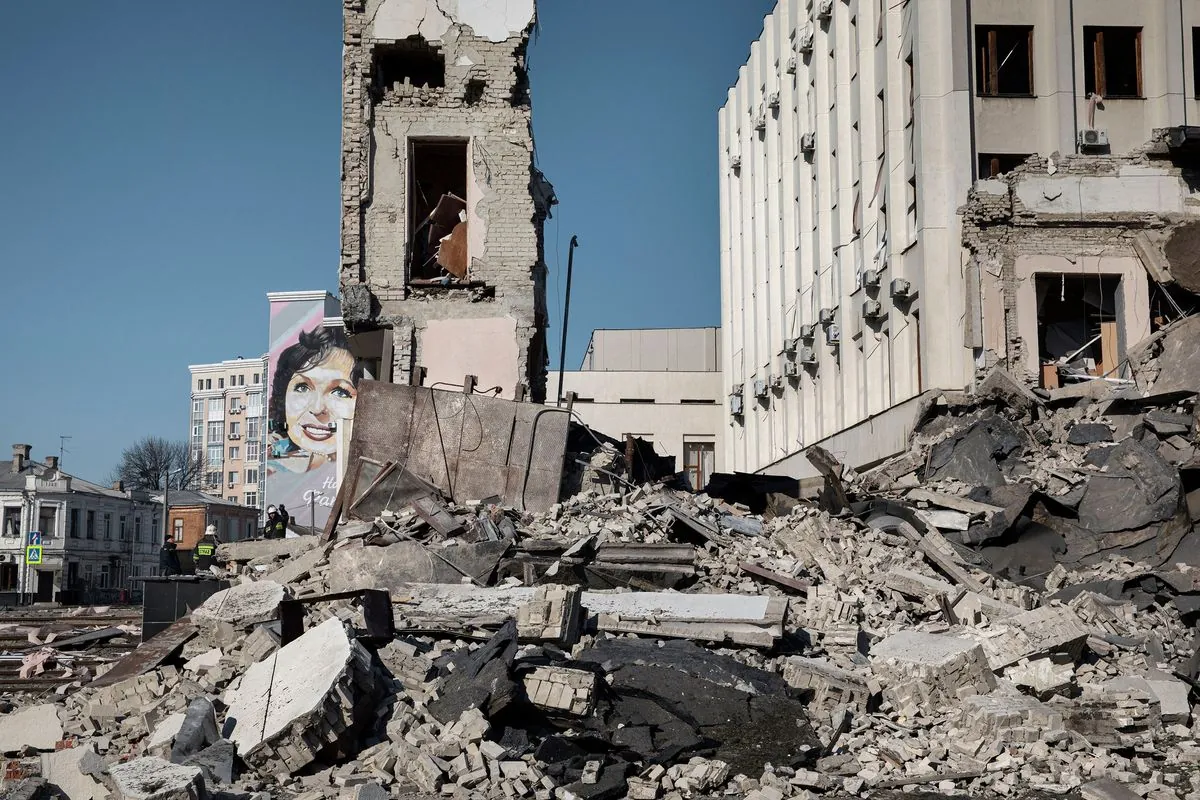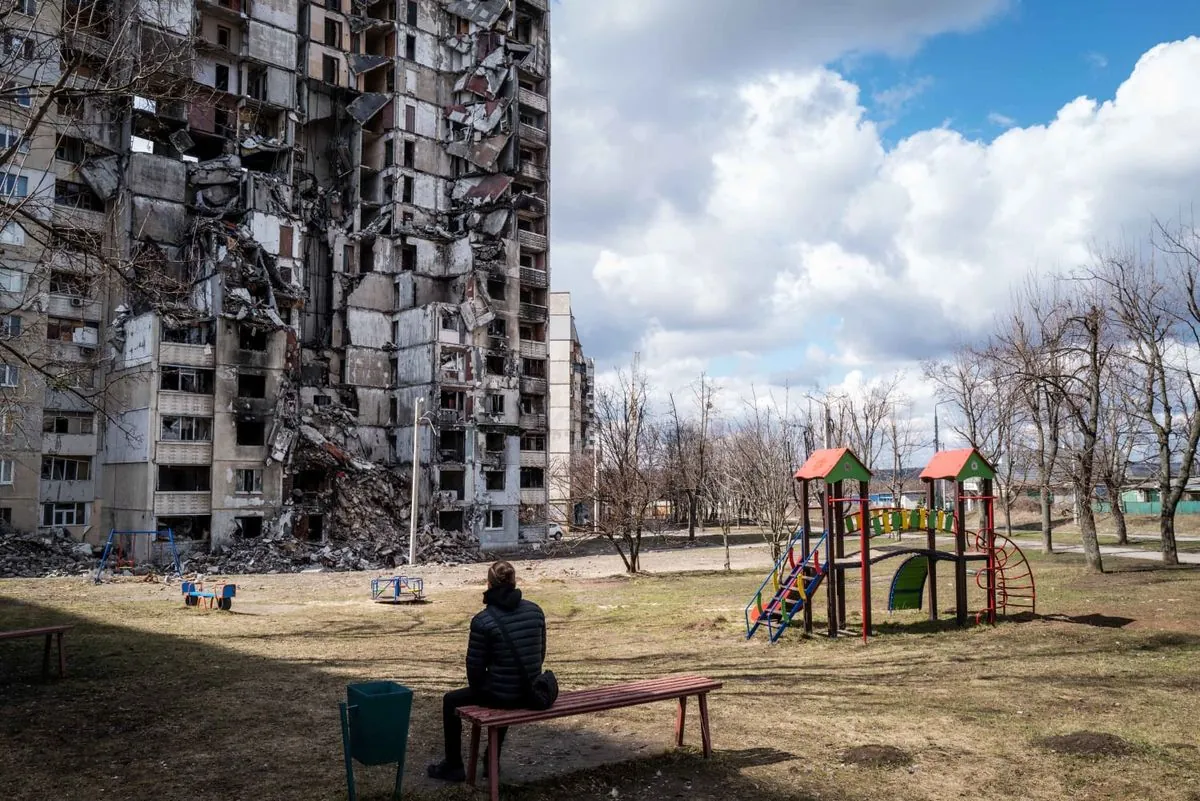Russian Airstrikes Devastate Kharkiv, Killing 6 and Injuring Nearly 100
Russian forces launched deadly airstrikes on Kharkiv, killing six and injuring almost 100. President Zelensky calls for international support as attacks continue in eastern Ukraine, prompting evacuations.

Russian forces conducted a series of devastating airstrikes on the northeastern Ukrainian city of Kharkiv, resulting in six fatalities and nearly 100 injuries. The attack, which occurred on Friday evening, targeted civilian areas, including residential buildings and a playground.
Oleh Syniehubov, the head of the regional administration, reported that dozens of apartment blocks were hit during the bombardment. The assault claimed the life of a 14-year-old girl near a playground, while more than 20 children and minors sustained injuries, including a 10-month-old infant, according to Kharkiv Mayor Ihor Terekhov.

Ukraine's general prosecutor's office stated that the Russian military employed aerial guided bombs weighing over 1,000 pounds in the attack. These Soviet-era munitions, fitted with wings and guidance systems, have become a frequent weapon in Russia's eastern offensive, despite their limited accuracy. The use of such weapons in urban areas has raised concerns among international law experts, who consider it a potential war crime.
Volodymyr Zelensky, the President of Ukraine, addressed the situation in a social media post, emphasizing the need for enhanced defensive capabilities. He stated:
"This strike was a Russian guided aerial bomb — a blow that would not have happened if our Defense Forces had the ability to destroy Russian military aircraft where they are based. We need strong solutions from our partners to stop this terror."
Zelensky renewed calls for Ukraine's allies to permit the use of Western-supplied weapons for strikes within Russian territory, describing it as an "absolutely reasonable need" with "no rational reason" for limitations.
The attack on Kharkiv is part of a broader pattern of Russian aggression in eastern Ukraine. On Saturday, Ukraine's air force reported that Russia launched 52 self-destructing drones and five missiles across various regions overnight. Air defenses successfully intercepted 24 drones, while three veered off course into Russia and neighboring Belarus. The majority of the remaining drones were neutralized by electronic warfare devices, according to a Ukrainian military official speaking anonymously due to the sensitive nature of the information.
The conflict has also intensified in the Donetsk region. Russian shelling in the city of Chasiv Yar, known for its refractory clay deposits, resulted in five fatalities on Saturday. Vadym Filashkin, head of the Donetsk regional military administration, urged remaining residents to evacuate, warning against becoming "a Russian target."
In Pokrovsk, a key supply hub and railway junction just 8 miles from the front lines, officials are preparing for potential evacuations. The city, which had a pre-war population of about 60,000, serves as a crucial logistical center for eastern Ukraine.
As the conflict continues, Ukraine's military relies on a combination of Soviet-era equipment and modern Western-supplied systems for its air defense. The country's air force, established in 1992 following the dissolution of the Soviet Union, has been receiving training and equipment from Western allies since 2014, when the conflict in the Donetsk region began.
The ongoing attacks underscore the urgent need for international support to bolster Ukraine's defensive capabilities and protect civilian lives in the face of continued Russian aggression.


































